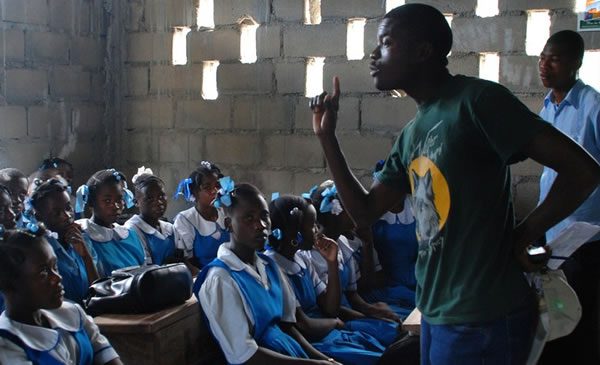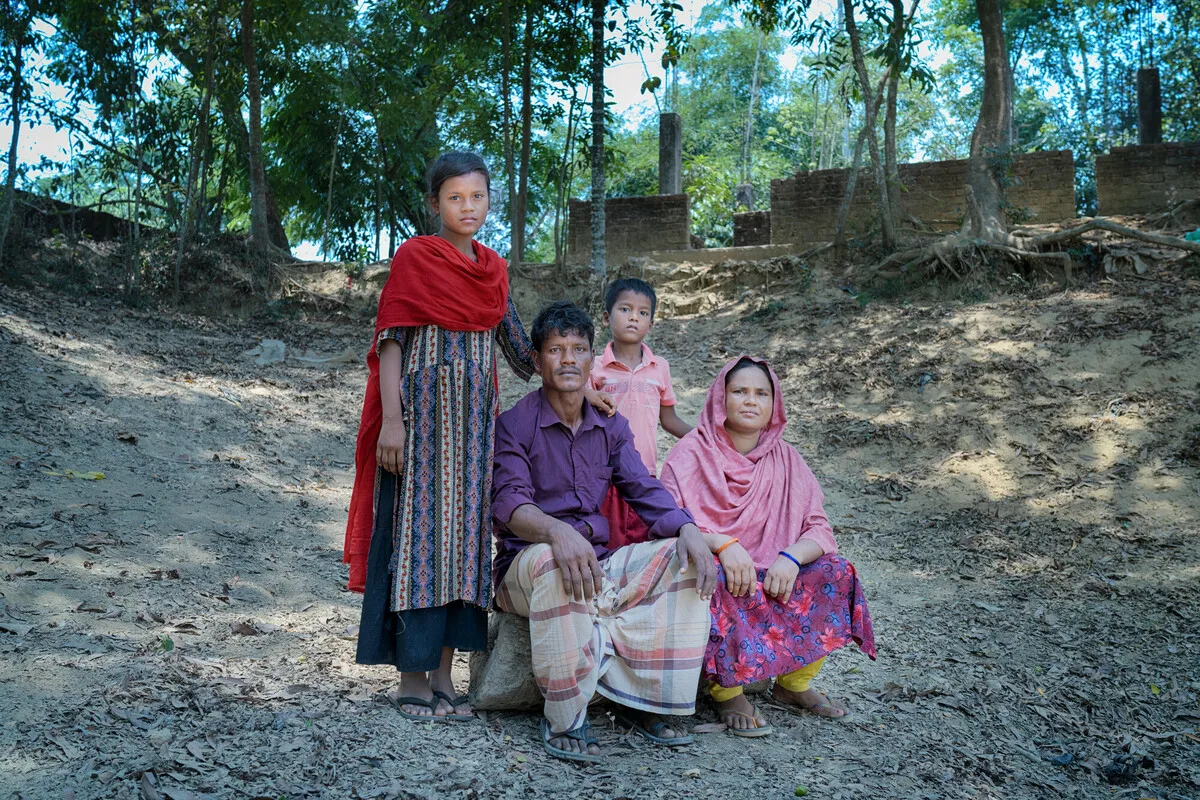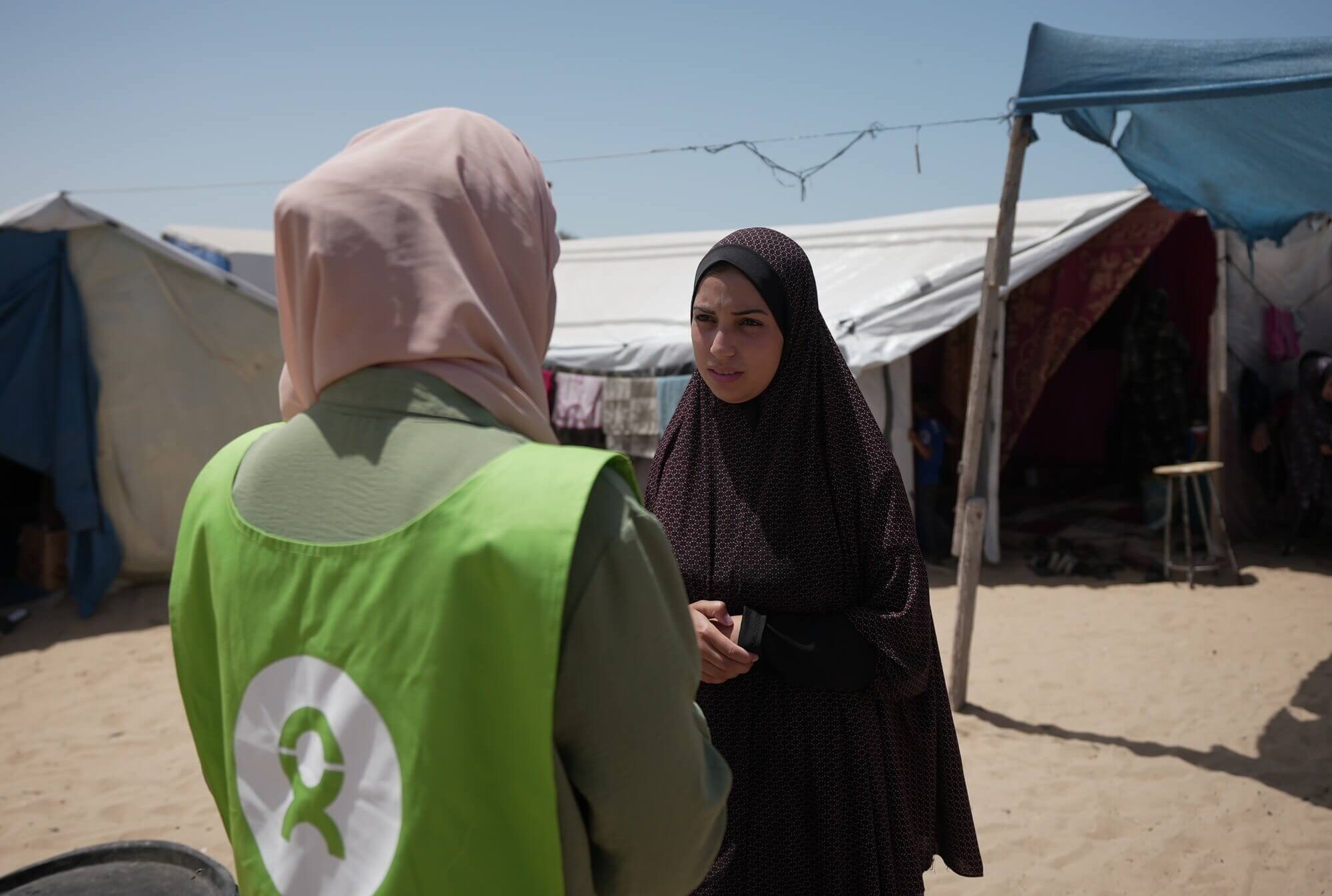Today is International Day for Disaster Reduction (October 13), and while most people know we help to save lives in the aftermath of disasters, you might not know we also do a lot of work helping communities prepare for future disasters. We take you to Haiti to show you how.
In the eye of the storm
Every year, damaging storms and hurricanes sweep through Haiti, destroying lives and livelihoods. Like Odline and her family, many of Haiti’s more than 8.5 million people are not prepared. Oxfam in Haiti is working to change that.
In 2008, four back-to-back storms battered the entire island, causing colossal damage to infrastructure, agriculture, and personal property.
“I was living in Gonaïves when Tropical Storm Jeanne hit [in September 2004],” recalls Emmanuel Andre. “The water took everything I owned and severely damaged my house. There was just too much damage in town, so my wife and I had to move to rebuild, start over, and to start a family.
“Now, Hanna came through and wiped out all that I had managed to rebuild. The only thing I was able to save was my one-year old son,” Emmanuel recounts solemnly.
And yet, while the successive storms affected more than 800,000 people nation-wide, the number of lives lost – a reported 793 – was just a fraction compared to the more than 3,500 that perished in the two storms that hit in 2004.
Disaster preparedness
It’s thanks to people like 32-year-old Jean Siba Généus, co-ordinator of the Port au Prince Municipal Disaster Risk Management Committee, that so many more people were able to survive the most recent storms.
“The Committee’s mission and role is to reduce risks associated with disasters and respond to the needs of community after a disaster has occurred,” Généus explains of the group formed and trained in 2006 with Oxfam’s support. “We are on alert throughout the hurricane season, planning, educating, and preparing communities for oncoming storms.”
The Port au Prince Committee – made up of 30 volunteer members – is part of a larger national network of departmental, municipal, and local committees of disaster risk management (DRM).
Such committees are now also functional in Odline’s community of Bahon and in several other parts of the country. Included in the work with the committees is the implementation of construction projects, such as new drainage canals, roads, bridges, protection walls, and the rehabilitation of shelters that aim to mitigate identified risks.
“Together we are saving lives”
“We cannot change geography,” Oxfam’s Haiti Country Director, Yolette Etienne, states. “But we can change how people act – to change the way we prepare and respond. The best way to do this is to build up and strengthen people’s capacity to reduce the risks associated with such disasters. In Haiti, this translates into saving lives.”
Généus proudly concurs. “I believe that we are saving lives. In the 2007 and 2008 hurricane seasons, we were extremely prepared at the committee and community levels, so much so that we did not record high levels of victims.” Généus contributes the success to the dedicated committees.
The committees also play a key role in the days prior and immediately after a storm hits. “In addition to a door-to-door educational campaign, we identified ten public buildings as potential temporary shelters,“ Généus explains.
In August and September 2008, these shelters – like hundreds throughout the country – housed several families who felt that they were in danger. Sometimes people came voluntarily, but sometimes the committee had to go and get people out of their homes and into the shelters. Généus is reflective when he says, “By doing this, I know that we saved lives, because some surely would have died had they not left their homes.”
Back in Bahon, Odline is happy with what she is learning about preparing for dangerous storms. “Now when we hear that rain is coming, we can prepare ourselves. If we have things to gather or to put in a safer place that the water will not get it we can do this in advance. Now we can be prepared!”
Oxfam’s disaster risk reduction projects are run in conjunction with the Haitian State and are primarily funded by the EU and ECHO.
- Read more about how we help in times of crisis
- Current emergencies we are responding to around the world



